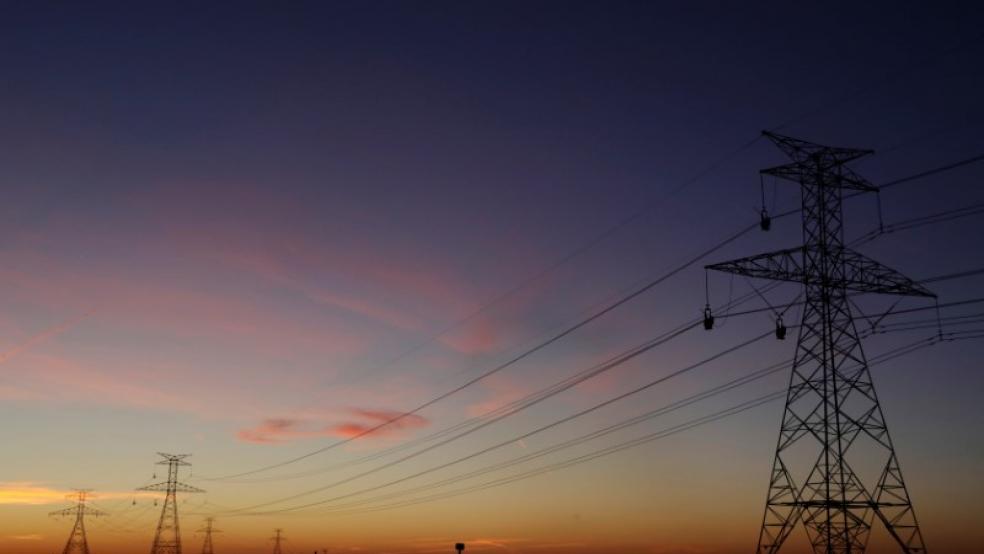The fossil fuel industry over the years has been unparalleled in lobbying federal and state officials to advance its agenda of unfettered coal, oil and gas production.
Last year alone, the energy and natural resources industry spent $85.5 million lobbying Congress and state officials, the Center for Responsive Politics reported, and it contributed nearly $180 million to mostly Republican candidates including President Trump, during the 2016 election campaign.
Related: Trump Pulls Out of the Paris Climate Deal: How Much Damage Could It Do?
With Trump now in the White House and former Oklahoma attorney general Scott Pruitt heading the Environmental Protection Agency (EPA), the official U.S. policy on the threat of climate change is decidedly skeptical.
Trump recently announced that he was taking the U.S. out of the 2015 Paris Accord designed to combat global warming. And the administration is currently systematically rescinding scores of Obama administration anti-pollution regulations that would add billions of dollars to the industry’s operating costs.
But at the same time the energy industry has waged high-profile and costly campaigns to combat federal and state regulations, an alliance of energy producers has quietly indoctrinated millions of school children across the country to the virtues of fossil fuels – the chief contributor to growing greenhouse gas emissions that are threatening the planet.
And ground zero for this prolonged effort is oil and gas rich Oklahoma, where Pruitt spent years as the state’s top lawyer combating the Obama administration’s Clean Power policy to clamp down on hundreds of aging, carbon-spewing power plants and facilities.
An eye-opening account by the Center for Public Integrity and NPR member stations in Oklahoma has documented the somewhat insidious practices of an industry that is winning the hearts and minds of young people with classroom books, special curriculums, computers and other teaching aids that have been eagerly accepted by many underfunded school systems.
A review of decades of documents dating back to the 1940s revealed “a tightly woven network of organizations that works in concert with the oil and gas industry to paint a rosy picture of fossil fuels in America’s classrooms.” The report also said, “Led by advertising and public-relations strategists, the groups have long plied the tools of their trade on impressionable children and teachers desperate for resources.”
Related: Trump’s Rollback on Clean Air and Water Rules Could Raise Health Care Costs
Here’s one recent example of how the system works: First graders were gathered at the Jefferson elementary school in Pryor, Oklahoma where they were entertained by two Republican state legislators, Tom Gann and Marty Quinn, who are closely allied to the energy industry. The lawmakers read aloud from “Petro Pete’s Big Bad Dream,” a parable about what a “nightmare” life would be without petroleum by-products.
The book is the latest in a series of materials produced by the Oklahoma Energy Resources Board, a state agency that is funded by the oil and gas industry. The board has spent nearly $40 million over the past two decades providing education “with a pro-industry bent” at no cost to educators of children from kindergarten to high school, the report claims.
Oklahoma is one of a dozen states that has chosen to use watered down versions of science textbooks provided by the industry that are stripped of sections on evolution and how humans contribute to climate change. Oklahoma has also joined Colorado, Kansas, and Montana in promoting state legislation that requires educators to teach “both sides” of those scientific concepts.
In Ohio, meanwhile, industry advocates have instructed teachers how to “frack Twinkies” using straws to pump for the cream to suggest to students that the highly controversial and destructive technique for shale drilling is relatively harmless. Oil and gas companies including BP and Shell have sponsored a national program arguing that it is still too soon to determine whether the earth’s temperature is rising and that “a little warming might be a good thing.”
Related: Environmentalists’ Worst Fears About Trump Are Coming True
The oil and gas industry for sure isn’t the only industry that has attempted to shape the thinking of students or showered classrooms with learning aids to enhance their public image. The dairy industry, for example, has spent decades promoting the virtue of milk in classrooms. Apple and other major computer companies have also polished their image by donating computers to schools.
And proponents of the energy-friendly classroom programs say they help the oil and gas industry to “replenish its aging workforce by stirring an early interest in science, technology, engineering, and math.”
But critics have challenged the educational value and ethics of schools helping to promote an industry that plays such a central role in climate change and that is trying to perpetuate a message of oil dependency when many thoughtful policy leaders are urging a move to cleaner, alternative energy sources.
Anthony Leiserowitz, director of the Yale Program on Climate Change Communications, compared the industry-sponsored curriculums that discount legitimate climate science to false advertising that is misleading generations of school children. He told the Center for Public Integrity that the industry was “exploiting that trusted relationship between the student and the teacher.”
Note: The Center for Public Integrity and StateImpact Oklahoma, a reporting project of NPR member stations in Oklahoma, wrote the original research report.





